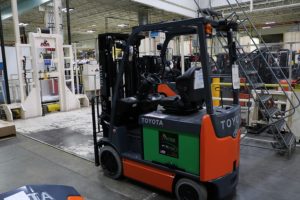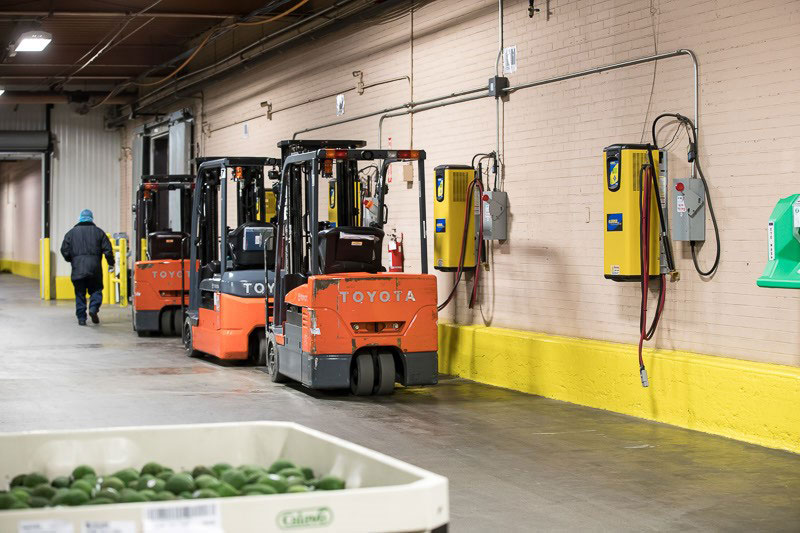When selecting a forklift battery, choosing the best option for your business needs is essential. There are two common types of forklift batteries, each with advantages and disadvantages. Here are answers to frequently asked questions about electric forklift batteries so you can make an informed decision when purchasing one.
What are the most common types of forklift batteries?
There are two common types of forklift batteries: lead-acid and lithium-ion.
Which forklift battery type is the most affordable?
Lead-acid batteries are less expensive upfront but may cost more long-term.
What are the advantages of lead-acid forklift batteries?
Lead-acid batteries are the most used forklift batteries due to their affordability and relatively low maintenance costs, making them the ideal choice for those on a budget.
What are the disadvantages of lead-acid forklift batteries?
Lead-acid batteries have some drawbacks—requiring frequent recharging and maintenance.
How long does it take to charge a lead acid forklift battery fully?
It takes about eight hours to charge a lead acid battery fully.
What is the lifespan of a lead-acid forklift battery?
A properly maintained lead-acid battery has a maximum lifespan of between 1,000 and 1,500 cycles.
What are the advantages of lithium-ion forklift batteries? 
Lithium-ion (Li-ion) batteries are quickly becoming the preferred option for many businesses due to their superior performance and efficiency compared to lead-acid batteries. Li-ion batteries offer several advantages over lead-acid batteries, such as longer run times, lighter weight, and no need for frequent recharging or maintenance due to their low self-discharge rate.
Are there any disadvantages of lithium-ion forklift batteries?
The downside is that Li-ion batteries are more expensive than lead-acid batteries.
How long does it take to charge a lithium-ion battery fully?
A lithium-ion battery can fully charge in as little as two hours.
What is the lifespan of a lithium-ion battery?
Lithium-ion batteries can last anywhere between 2,000 and 3,000 cycles.
Do you have to fully charge a lithium-ion battery before using it?
One of the significant advantages of lithium-ion batteries is called opportunity charging, which is the ability to plug in and charge any time of the day, even if only for a few minutes. With opportunity charging, forklifts are plugged into chargers anytime the operators are on break, lunch, or during a shift change. When the operators return to work, the forklifts are ready until the next opportunity to charge.
What is the best battery choice for multi-shift operations?
Fast-charging lithium-ion batteries are the ideal choice for multi-shift operations.
What is the best forklift battery choice overall?
Lead-acid batteries are inexpensive but require frequent recharging and maintenance, while lithium-ion batteries offer longer run times and less maintenance but come with higher price tags attached. There is no one size fits all solution when choosing a battery option for your forklift; each business has unique needs and budgets to consider when making this crucial decision. Consider all factors carefully to ensure you get the most out of your purchase.
Can we get advice before we make our choice?
Absolutely. Our material-handling experts are available for free consultations. Contact us today!
Tags: buying an electric forklift, electric forklifts, free resources
